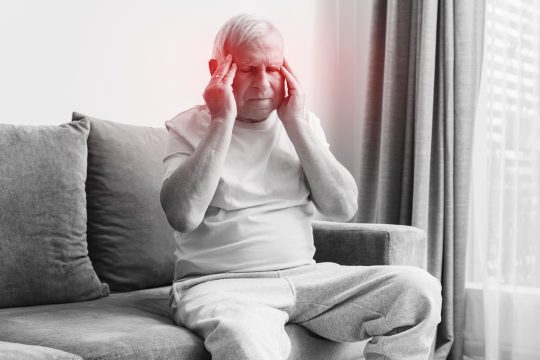
When a person takes a severe blow to the head, either due to a fall or hit by an object, they could experience Traumatic Brain Injury (TBI). According to the Center for Disease Control, motor vehicle accidents and falls are the leading causes of TBI in America. Other common causes are assault and firearm incidences.
Research shows that the number of people experiencing TBI is on the rise. But within this rise is a subtle epidemic many people are unaware of – the number of senior adult hospitalizations and fatalities due to TBI is on an upward trend. In 2013, adults aged 75 years and older constituted the highest number of TBI incidences for the first time. Among older adults, TBI could go unnoticed. Without treatment, TBI will lower the quality of life and lead to short-term and long-term health problems and other complications.
This article will help you understand the signs, risks, and prevention. This article will also help you grasp how to optimize the recovery process.
TBI in the elderly: the tell-tell signs
The following are some of the symptoms of TBI:
- Behavior changes, unusual mood swings, and agitation or restlessness.
- Memory problems, confusion
- Loss of consciousness
- Dizziness, blurred vision, nausea, and severe headaches.
- Slurred speech, sensitivity to light and smell
- Sudden change in sleeping patterns – the person sleeps too much or little.
It is easy to miss or misdiagnose TBI in a senior. One could confuse the signs as indicators of other brain conditions common among older adults like dementia. If a senior expresses these symptoms, it is crucial to know whether they were recently involved in a car accident or a fall. This way, you can rule out or address TBI.
But why is it so important to correctly diagnose TBI among seniors?
Risks of TBI among the elderly
Older adults are more likely to be hospitalized and succumb due to TBI. This is because seniors have more comorbidities than the young. For example, older people experience physiological changes like:
- Lowering of the dura-adherence to the skull
- Increased vein fragility
- Cerebrovascular atherosclerosis
These changes put seniors at a higher risk of bleeding in the brain. Also, older adults are more likely to be taking anticoagulant medication or blood thinners. Thus they are at a higher risk of intracranial bleeding. What may seem like a mild blow to the head in a senior could cause TBI and brain hemorrhage and be fatal.
Preventing TBI among seniors
Research shows that falls account for more than half of TBI among adults aged 75 and above. After the first fall, a senior is more likely to experience subsequent falls. Further research shows that seniors living in nursing homes are twice as likely to experience a fall than those who live at home.
Therefore, improving the quality of care at nursing homes could result in significantly lower incidences of TBI among the elderly.
Some of the steps caregivers could take to prevent TBIs include:
- Enhance balance exercises and strength training
- Ensure walkways are well lit
- Provide proper equipment like well-fitting and sturdy shoes, rigid handrails, and grab bars
- Removal of hazards from walkways. A person could trip and fall due to obstruction by items like loose rugs and poorly placed furniture.
- Regular training of staff members.
- Provide sufficient drinking water. Good hydration will help maintain blood pressure and thus reduce the likelihood of dizzy spells when standing.
Recovery
Seniors tend to take more time for TBI recovery than younger people. However, with proper and consistent care, elders can recover fully. The chances of returning to excellent brain health improve if the diagnosis is early and the patient begins to receive treatment in good time. By gradually increasing the intensity of rehabilitation exercises, the patient stands a better chance of recovery. Some of the workouts include:
- Speech and cognitive skills exercises
- Physical therapy
- Occupational therapy
- Psychotherapy
These exercises should continue even after the prescribed period is over. The patient may seem fully recovered. But, an abrupt halt could result in a reversal of the gains. Plus, the exercises generally boost the well-being of seniors.
Conclusion
The best way to protect an older adult from TBI is by prevention. Ensure seniors take sufficient water, have the proper equipment, walkways are well lit and free of obstacles. Regular workouts boosting strength and balance will also go a long way in preventing TBI among the elderly. But sometimes falls and car accidents are unavoidable. In such cases, timely diagnosis is crucial. It sets the stage for correct post-injury care by specialists. However, stretched resources could cause one to skimp on such care.
Therefore, it is crucial to ensure you have the correct insurance coverage. Also, keep abreast with medicare developments and talk with experts concerning various issues affecting seniors. It will help you learn more about preventing falls and other causes of TBI and how to handle the recovery process.
Subscribe
Sign Up for Our E-Newsletter!
Stay up-to-date on all of the topics you care about by subscribing to our quarterly newsletter emailed directly to your inbox!
SubscribeSubscribe
Sign Up for Our E-Newsletter!
Stay up-to-date on all of the topics you care about by subscribing to our quarterly newsletter emailed directly to your inbox!
Subscribe